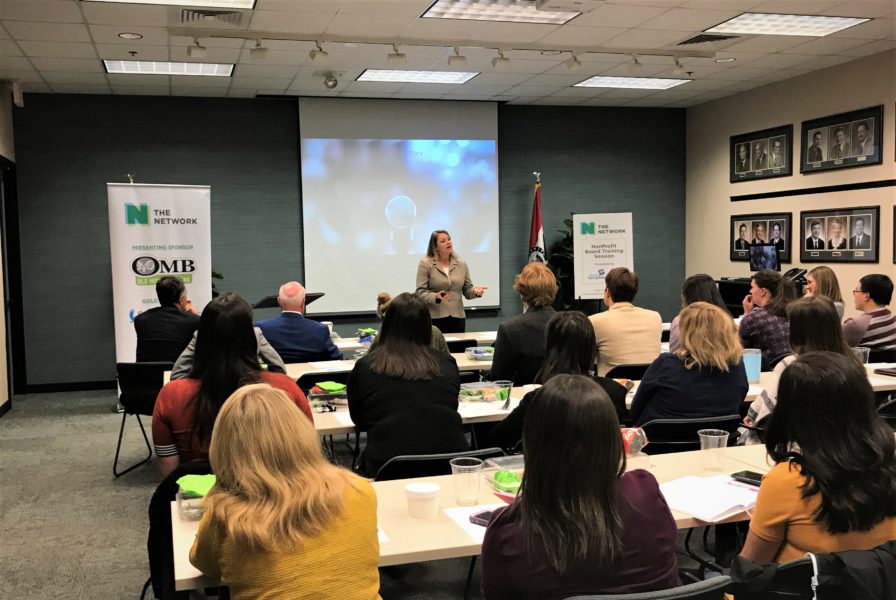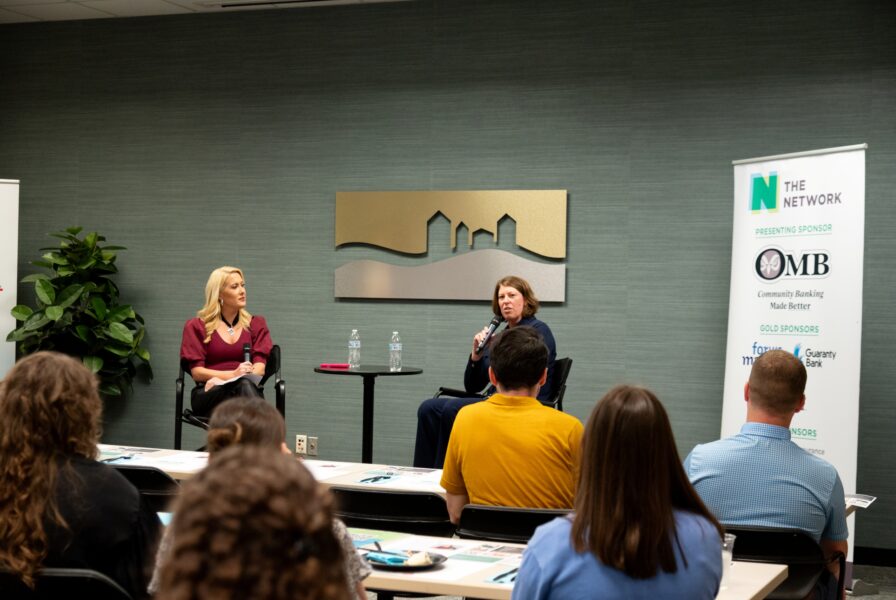As young professionals, it’s important to give back to the community where we live. One way to give back is to serve on a non-profit board … but that can feel intimidating, especially early in your career.
Organizations in Springfield value YP input, so The Network strives to empower and equip our members with the tools they need to serve. On November 5, we brought in experts to teach our professionals what it takes to serve on a board for a non-profit organization.
To kick the event off, attendees got to hear from Brian Fogle, executive director of the Community Foundation of the Ozarks, about the structure and makeup of boards and how to market yourself to boards. One thing we learned from Brian: You must be passionate about the cause! You also must be present and prepared at meetings and give your time, talent and treasure. You have a duty of loyalty and obedience.
Following Brian, Jim Anderson with CoxHealth talked about board governance. He stressed the importance of loyalty and said on a board, there must be a climate of trust, because members should feel comfortable challenging points of view. Our tendency is to avoid conflict, but a board must be made up individuals with differing perspectives.
For some young professionals, the most intimidating part of serving on a board is the expectation that they should be able to read financial statements. Katie Davis with the Great Game of Business – who doesn’t think of herself as a numbers person, taught us how anyone can have financial literacy. She said everyone on a board has financial responsibilities, adding that all board members should be able to understand the organization’s income statement, balance sheet and cash flow statement.
To end the session, Jaimie Trussell with Adult & Teen Challenge shared the importance of a board member’s role in fundraising – another potentially intimidating responsibility for young professionals! Jaimie said anyone can fundraise and said it’s an important role. When serving on a board, you are expected to make a financial contribution. The reason: The organization needs to see that you are invested and passionate about the organization if you are going to be asking for money from others.
But fundraising isn’t the only to support an organization, though; you should also tell its story, wear its brand and share your experience!



